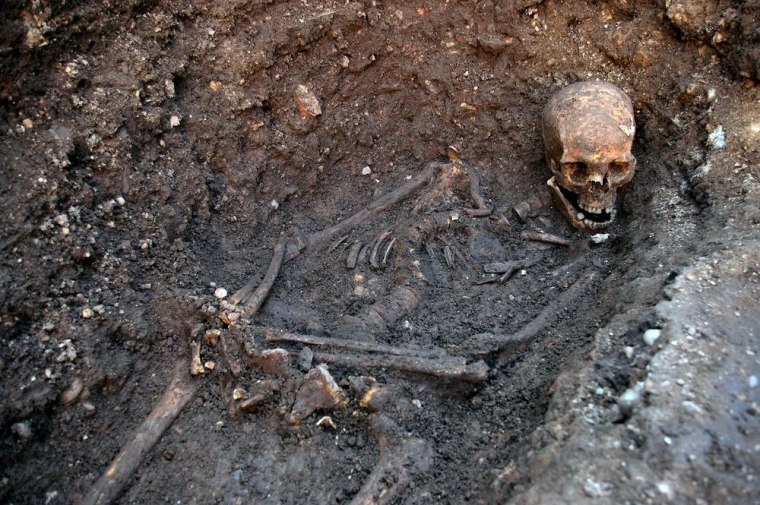The genetic code of King Richard III, the medieval English monarch whose body was found buried under a parking lot in Leicester, is set to be sequenced.
Researchers at the University of Leicester announced the project on Tuesday. The goal, they said, is to catalog as complete a genome as possible from the king to learn more about his ancestry and health.
"Sequencing the genome of Richard III is a hugely important project that will help to teach us not only about him, but ferment discussion about how our DNA informs our sense of identity, our past and our future," Turi King, a geneticist at the University of Leicester who will lead the project, said in a statement. [Photos: In Search of the Grave of Richard III]
Richard III was the last English king to die in battle. He perished in the Battle of Bosworth during the War of the Roses, a long-lasting civil war between noble families of England. After his death in August 1485, Richard's body was taken to Leicester and buried in a hasty grave; the location of the grave was then lost. In 2012, archaeologists embarked on a mission to find the king's skeleton, digging in a city council parking lot based on clues in historical documents.
In February 2013, researchers announced that they'd hit the jackpot: A skeleton with a curved spine, found stuffed in a sloppy grave, did indeed belong to Richard III. The identification took advantage of mitochondrial DNA analysis, but now the remains will get the whole-genome treatment.
— Stephanie Pappas, LiveScience
This is a condensed version of a report from LiveScience. Read the full report. Follow Stephanie Pappas on Twitter and Google+. Follow LiveScience on Twitter, Facebook and Google+.
